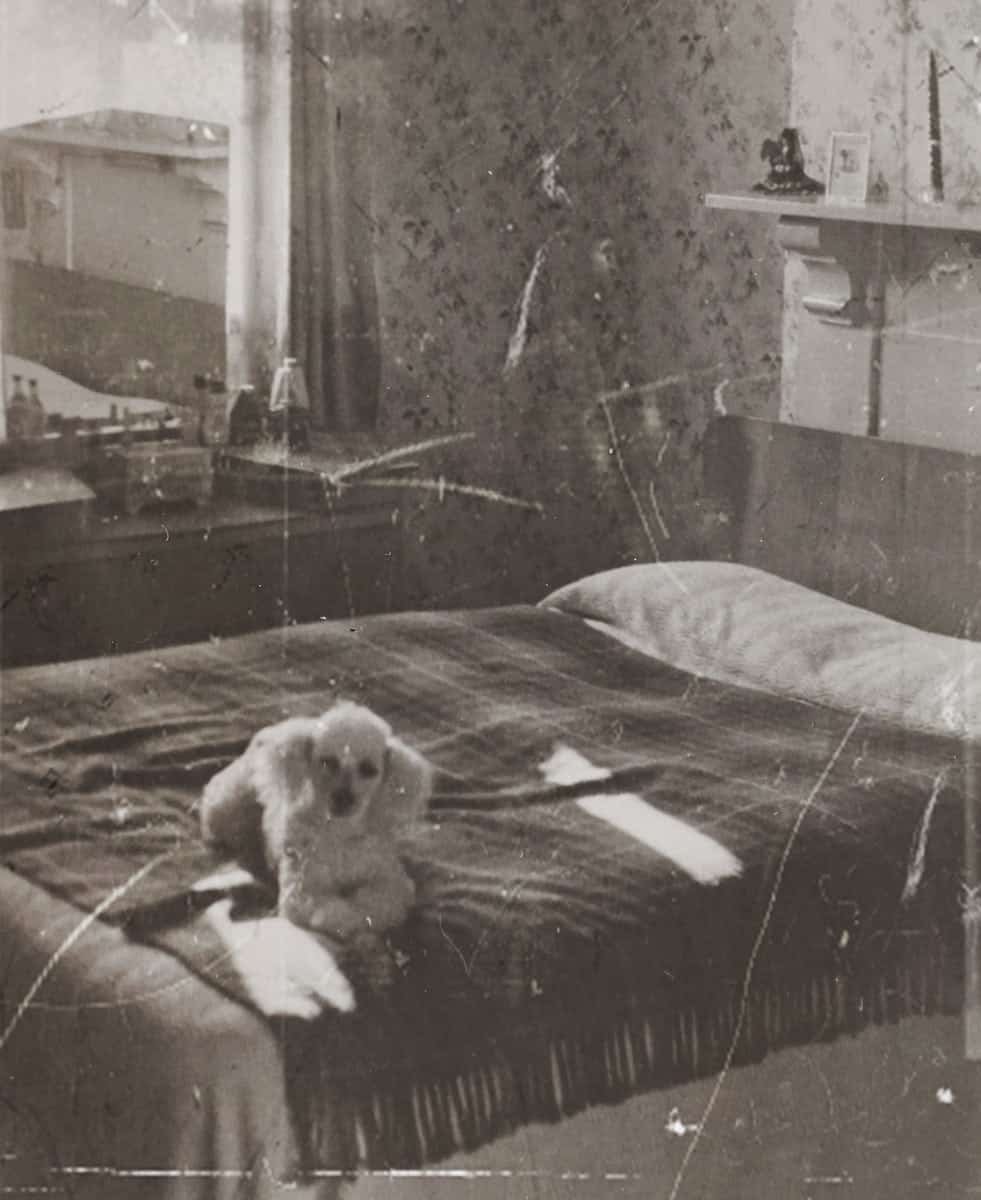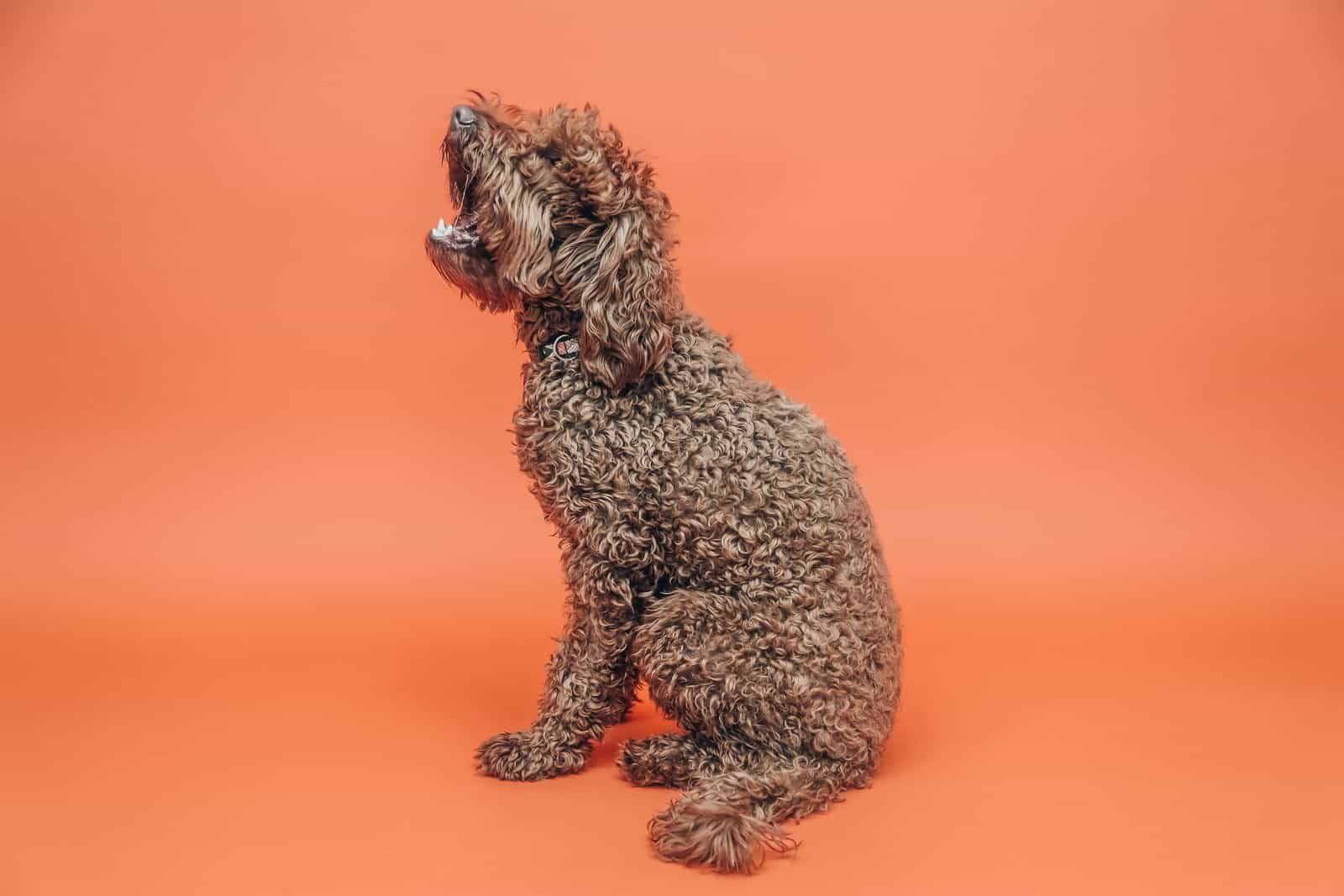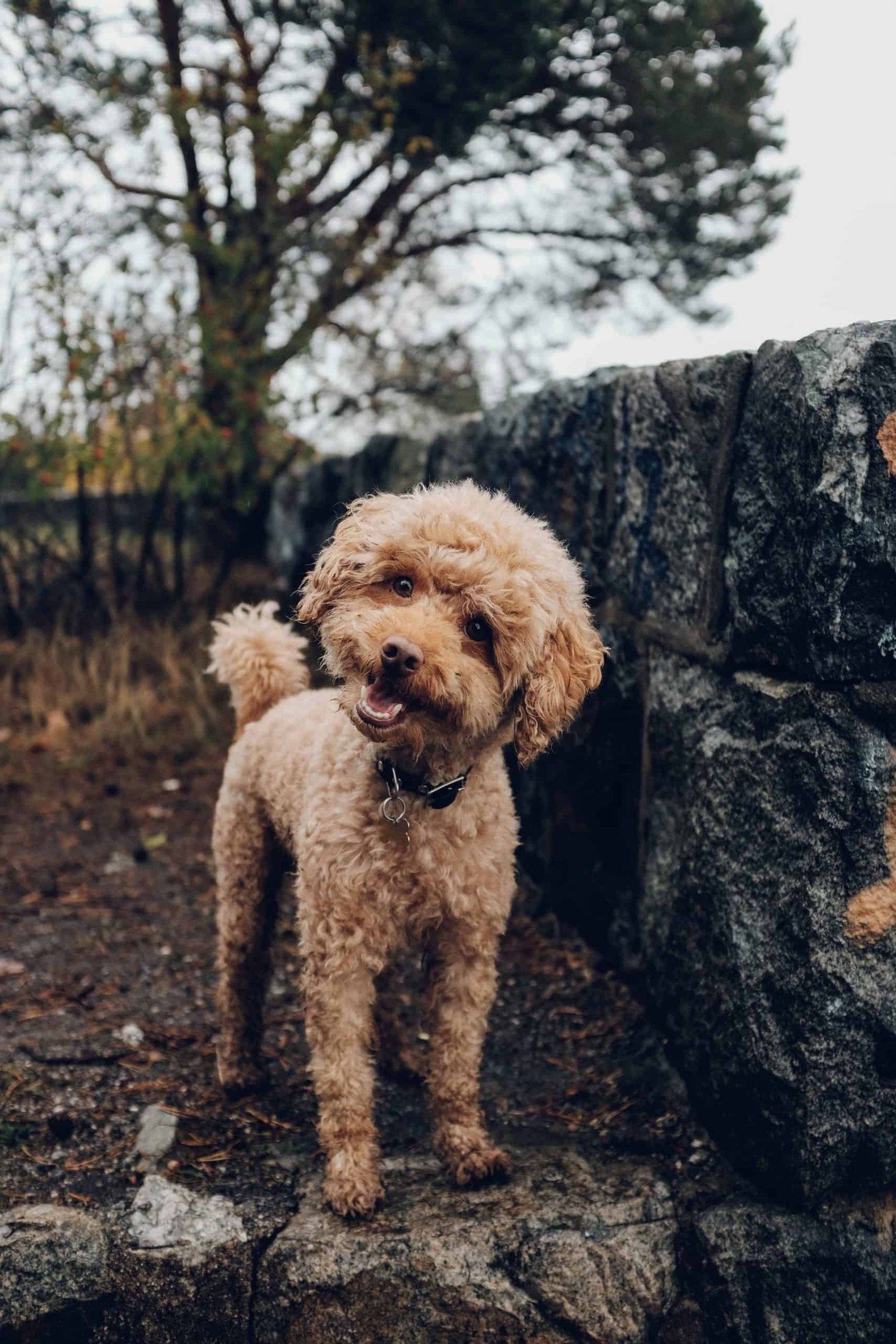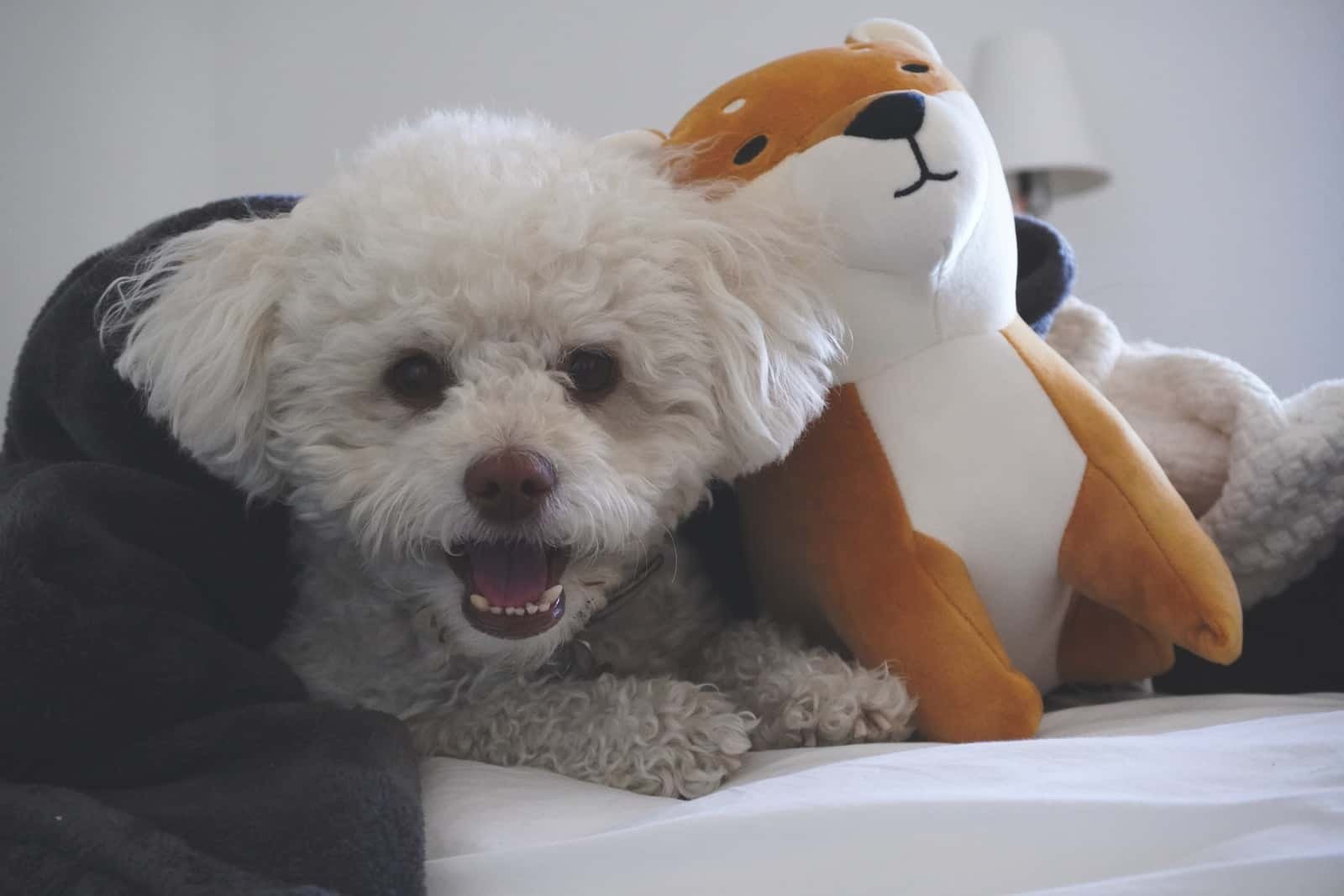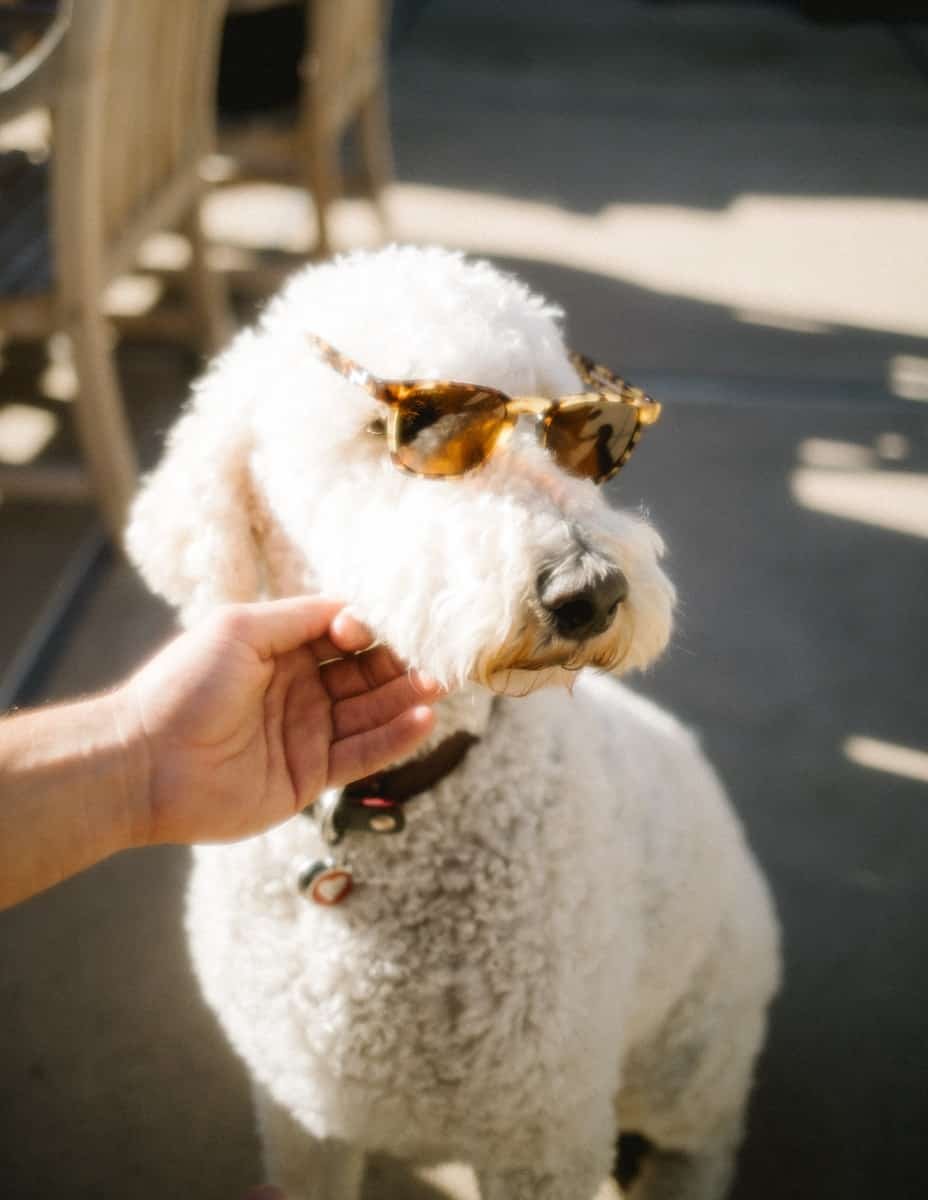
Poodles are an intelligent breed and suitable for almost everyone. Whether families, couples, or those living solo, these dogs make fantastic pets. But are these dogs excellent companions as we grow older?
If you’re a senior or plan to get a Poodle for your older relative, find out if this breed is suitable for you!
So, are poodles a good companion as we age? Short answer: Yes. While there might be some reasons the Poodles aren’t the choice for seniors as companion dogs, the benefits outweigh any disadvantages.
Here are why the Standard Poodle, Miniature Poodle, or Toy Poodle is an excellent choice for seniors as family dogs or when living alone.
Poodles are Soft-Tempered
Poodles are friendly and have a kind demeanor towards children, adults, seniors, and other animals. This popular breed is also very loyal with high affection levels.
Poodles are such loving dogs that want to be around their owner 24/7! That’s great for seniors who need a companion who will love their attention the entire time.
Poodles are also extremely sensitive and can pick up on your emotions. If you feel happy, expect your dog to jump for joy! And if you feel sad, your Poodle will sense it and cuddle on your lap for support. That’s why you can find Poodles working as therapy dogs or emotional support dogs.
However, note that Poodles are prone to separation anxiety, so if you go out for a few hours, they can destroy furniture or whine a lot until you come back! If you can’t give enough time to your Poodle, this may not be the best choice for seniors.
Poodles are Intelligent
Poodles require adequate training to be well-behaved and won’t use their loud voice or activity level to wreak havoc. Fortunately, seniors can easily refer to training videos and use positive approach training to teach their Poodle commands and behave appropriately.
Even if you’re a first-time dog owner, Poodles will learn quickly, thanks to their intelligence and eagerness to please. With proper socialization and basic obedience training, your Poodle will grow up with good manners and will welcome other people and dogs with delight.
Given the Poodle’s intelligence, you can also expect your dog to be alert. While there might be some barking here and there, that’s because your Poodle’s trying to protect you!
Poodles Don’t Shed Much
We know Poodles as a low-shedding breed with a smooth coat. If you have allergic reactions towards dogs, then you’ll do great with a Poodle!
These dogs don’t shed as much because of their curly coat of hair, and as long as you brush their beautiful coat daily, you won’t have trouble with their hair all over your floor and furniture. It’s also less hassle on your end when sweeping and vacuuming.
The Poodle’s dense coat has them adaptable to most types of weather. They can handle the hot or cold weather, as long as it doesn’t reach extremities.
Are There Downsides to Owning Poodles?
Unfortunately, sometimes the Poodle isn’t the best choice for seniors. Here are things to consider before you get a Poodle for elderly people.
Poodles require a lot of exercise
Poodles are high-energy dogs that need to play and run around to expend their energy level. These intelligent dogs require plenty of exercise, and if you aren’t too energetic yourself, they won’t be able to feel appropriately stimulated in the long run.
Under-exercised Poodles become bored and frustrated, taking it out on your furniture or through whining. For seniors who cannot walk or spend too much time outdoors for specific reasons, you can hire someone or ask a loved one to walk your Poodle daily. After Poodles get their regular exercise outdoors, they will do just fine cuddling at home or playing challenging games with their owner indoors. These dogs love one-on-one playtime even when indoors, may it be a game of hide-and-seek or with their toys.
Poodles may not like the apartment life
Because Poodles require physical and mental stimulation, they’ll want to move around a lot, requiring a bigger space to do so. Poodles aren’t a fan of feeling cooped up in a small home without much exercise, especially if they cannot go outdoors to the nearest park.
For those living in smaller apartments, you can still own a Poodle. We recommend a tiny Toy Poodle as it only measures less than 10 inches tall and will feel like it has more space to run around indoors. While the Miniature and Standard Poodle can adapt to the apartment life, they are better off in ample space to run in the backyard as part of their daily exercise.
But even then, you can find Poodles adapting to all types of households, especially those with calm environments. Poodles will thrive well as long as the human family doesn’t live in conflict and noise. As for exercise in a smaller space, you can always leave toys, play indoor games, and go on daily walks, suitable for the active senior and his pet!
Poodles are high maintenance
Besides their vigorous exercise and training requirements, the Poodle also has grooming requirements you must meet.
Poodles have a thick, curly coat that gets thicker as they age. Because of that, the dense coat can easily mat or tangle if not brushed daily. Owners need to brush the coat every day and bathe and trim Poodles every 3-6 weeks. If this isn’t possible, you can always take them to a professional groomer, though the fees can add up.
Because of their grooming needs, a smaller dog like the Miniature or Toy Poodle may be best. These dogs take less time and effort for daily brushing, and it won’t cost as much to groom as the bigger Standard Poodle.
Also, Poodles are very sensitive to changes. If you need to move homes a lot, your dog can feel more anxious and stressed. But for those with a more consistent routine, your Poodle will thrive off it, feeling happy and content.
With that in mind, we believe that Poodles are the top choice for people as long as they can give the time and effort to care for their pets. Poodles will require more exercise and grooming, but that doesn’t mean they are the most challenging dogs for seniors.
Suppose you’re interested in getting a Standard Poodle, Miniature Poodle, or Toy Poodle. In that case, you can purchase them from a reputable breeder or adopt them from your local animal shelter rescue group. Ensure you have the dog’s health clearances and are prepared for its needs before bringing it home. It will be worth all the effort!

